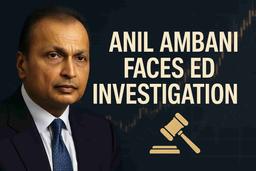The Indian government is considering significant new measures to address the persistent issue of delayed payments to Micro, Small, and Medium Enterprises (MSMEs). Proposed actions include automatically applying interest charges on overdue invoices past 45 days and potentially imposing a substantial levy, up to 2% of turnover, on large buyers found non-compliant. These steps aim to enforce timely payments and protect the financial health of millions of MSMEs crucial to India's economy.
The Indian government is exploring a robust set of new measures to tackle the critical problem of delayed payments to Micro, Small, and Medium Enterprises (MSMEs). Discussions are underway between the Ministry of MSME and the Ministry of Finance to amend the Micro, Small and Medium Enterprises Development (MSMED) Act, 2006. Key proposals include mandating automatic interest accrual on payments overdue beyond the standard 45-day period, unless a longer payment term is explicitly specified in a contract.
Furthermore, a significant penalty is being considered in the form of a levy amounting to 2% of the turnover of large buyers who fail to comply with payment timelines. This contrasts with the current system, where interest and penalties only trigger after an MSME formally files a complaint.
Delayed payments currently represent a staggering ₹9 trillion annually, impacting approximately 71.4 million registered MSMEs, which are vital to India's economy, contributing around 30% to GDP and 45% of total exports.
Other regulatory measures being examined include mandatory quarterly reporting of payment days and interest paid to MSMEs in corporate filings, and introducing compensation per invoice for micro and small businesses, aligning with global practices.
The Finance Act 2023 already introduced Section 43B(h), which disallows expenses for payments delayed beyond 45 days to MSME suppliers from being deducted in the same fiscal year, thereby increasing the taxable income for defaulting businesses starting April 1, 2024.
Global benchmarks from countries like the Netherlands, the EU, and the UK, which enforce strict payment terms, are being studied for implementation.
Rating: 8/10
This news is highly impactful for the Indian stock market and Indian businesses, especially the MSME sector. It aims to significantly improve the financial health and working capital management of millions of micro, small, and medium enterprises, which form the backbone of the Indian economy, contributing substantially to GDP and exports. By mandating interest accrual and introducing penalties for delayed payments, the government is attempting to create a more equitable business environment. Large corporations and government entities that are often the defaulters will face increased financial pressure to expedite payments, potentially leading to better cash flow visibility for MSME suppliers. This could reduce the need for MSMEs to seek expensive credit, thereby improving their profitability and sustainability. For the stock market, while no specific stocks are directly named as impacted, companies with significant MSME supply chains might see improved operational efficiency and reduced supply chain risk for their partners. The overall economic sentiment for the SME sector could improve, encouraging investment and growth.


